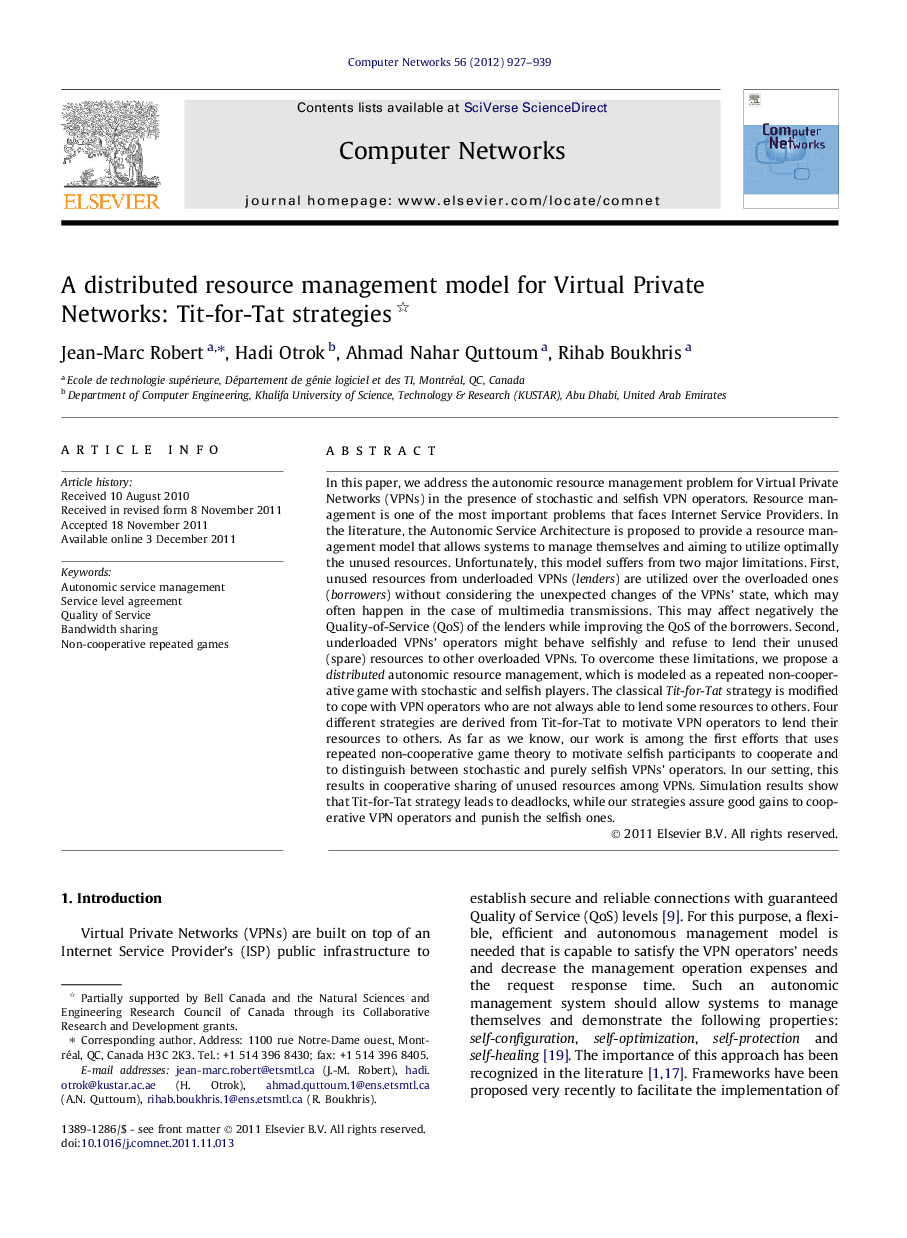| Article ID | Journal | Published Year | Pages | File Type |
|---|---|---|---|---|
| 451210 | Computer Networks | 2012 | 13 Pages |
In this paper, we address the autonomic resource management problem for Virtual Private Networks (VPNs) in the presence of stochastic and selfish VPN operators. Resource management is one of the most important problems that faces Internet Service Providers. In the literature, the Autonomic Service Architecture is proposed to provide a resource management model that allows systems to manage themselves and aiming to utilize optimally the unused resources. Unfortunately, this model suffers from two major limitations. First, unused resources from underloaded VPNs (lenders) are utilized over the overloaded ones (borrowers) without considering the unexpected changes of the VPNs’ state, which may often happen in the case of multimedia transmissions. This may affect negatively the Quality-of-Service (QoS) of the lenders while improving the QoS of the borrowers. Second, underloaded VPNs’ operators might behave selfishly and refuse to lend their unused (spare) resources to other overloaded VPNs. To overcome these limitations, we propose a distributed autonomic resource management, which is modeled as a repeated non-cooperative game with stochastic and selfish players. The classical Tit-for-Tat strategy is modified to cope with VPN operators who are not always able to lend some resources to others. Four different strategies are derived from Tit-for-Tat to motivate VPN operators to lend their resources to others. As far as we know, our work is among the first efforts that uses repeated non-cooperative game theory to motivate selfish participants to cooperate and to distinguish between stochastic and purely selfish VPNs’ operators. In our setting, this results in cooperative sharing of unused resources among VPNs. Simulation results show that Tit-for-Tat strategy leads to deadlocks, while our strategies assure good gains to cooperative VPN operators and punish the selfish ones.
